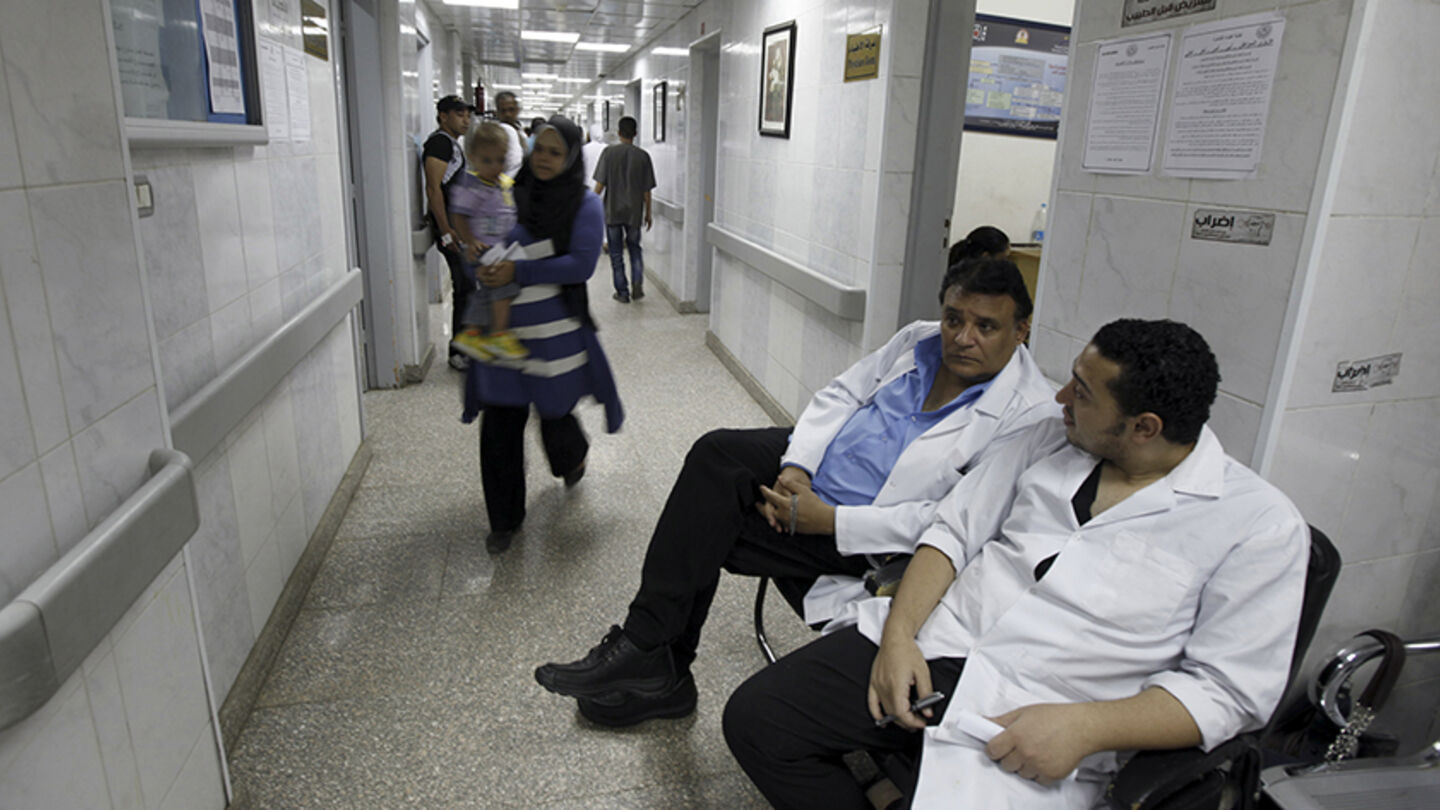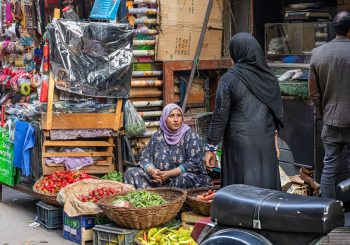Starting 2025, Egyptian medical school graduates will be exempt from the mandatory two-year service program, known as ‘Takleef,’ at primary healthcare facilities, according to Osama Abdel Hay, head of the Egyptian Medical Syndicate.
For over 50 years, Egyptian law has granted the Ministry of Health the right to mandate the assignment of medical school graduates to work in government hospitals or affiliated units. Thousands of Egyptians medical school graduates have been assigned since then.
The new policy, introduced in September 2022, states that effective from 2025, placements will be determined based on need and staff shortages in hospitals and healthcare facilities. The policy applies to graduates in physical therapy, medicine, dentistry, nursing, and pharmacy, according to the General Syndicate of Physical Therapy.
The spokesperson of the Ministry of Health and Population, Hossam Abdel-Ghaffar, clarified that the decision to streamline, not eliminate, the mandatory assignment system for doctors was motivated by a range of factors.
Among the main reasons is enhancing job satisfaction within the profession and financial considerations, according to Abdel-Ghaffar; the government allocates roughly EGP 500 million (USD 10.2 million) each year to sustain the assignment system, which includes expenses for salaries, logistics, and added incentives for doctors posted to less desirable areas around the country.
“This decision was necessary to prevent issues. It wouldn’t make sense for the ministry to require 1,000 pharmacists but assign 19,000. Many pharmacists might later request transfers to cities like Cairo, leaving health units and hospitals in places like Sohag understaffed,” a source at the Ministry of Health explained.
Khaled Amin, Assistant Secretary-General of the Egyptian Medical Syndicate, paralleled the same opinion, stating that a revision of the mandatory service system for medical graduates was necessary to better match medical education with job market needs.
Takleef
The previous assignment system was the first step in a doctor’s career in Egypt within the health ministry. Doctors would serve in these assignments for one to three years, depending on their specialty, before they were eligible to explore other career opportunities or specializations.
The system aimed to ensure equitable healthcare access by assigning newly-graduated doctors to areas with the greatest need, often in remote or underserved regions such as Suhag and Minia. These doctors served as the primary source of medical care for these communities.
According to Abdel-Ghaffar, the mandatory system frequently caused dissatisfaction among young doctors, who felt that being assigned to locations regardless of their preferences or career goals resulted in lower-quality patient care.
He said, “The new voluntary system gives doctors the right to choose positions that align with their skills and aspirations, ultimately improving job satisfaction and healthcare outcomes.”
Shortage Sparks Need
The World Health Organization (WHO) estimates a minimum of 4.45 doctors, nurses, and midwives per 1,000 people is considered necessary to meet the healthcare workforce needs, as indicated by the Sustainable Development Goals (SDG) index threshold.
As of September 2020, the Egyptian Medical Syndicate reported that the Ministry of Health had 229,033 registered physicians, with only about 108,000 of these doctors working in the public health sector, excluding nurses, dentists, pharmacists, physical therapists, and lab technicians, according to a 2021 policy paper by the American University in Cairo (AUC).
This makes the ratio of physicians in Egypt 1.3 to 1,000 people, nearly half the recommended WHO average of 2.3 physicians to 1000 population, highlighting a stark shortage and need for physicians in Egypt.
Many doctors leave Egypt to work abroad; as of Jan 2023, 4,361 government-employed doctors resigned, according to Ahmed Ali, a member of the Medical Syndicate Council. The Egyptian Medical Syndicate has blamed the phenomenon on low wages and a poor work environment, which includes understaffed and under-resourced medical facilities.
Egypt’s Minister of Health and Population, Khaled Abdel Ghaffar, echoed the same concerns, “There is a shortage of medical doctors relative to the population, although 14,000 doctors graduate from universities and are assigned to hospitals.”
The shortage, combined with assignments based on job market needs, suggests that while it is not mandatory for doctors to be assigned, they will still have the opportunity to complete their two-year service.







Comments (0)